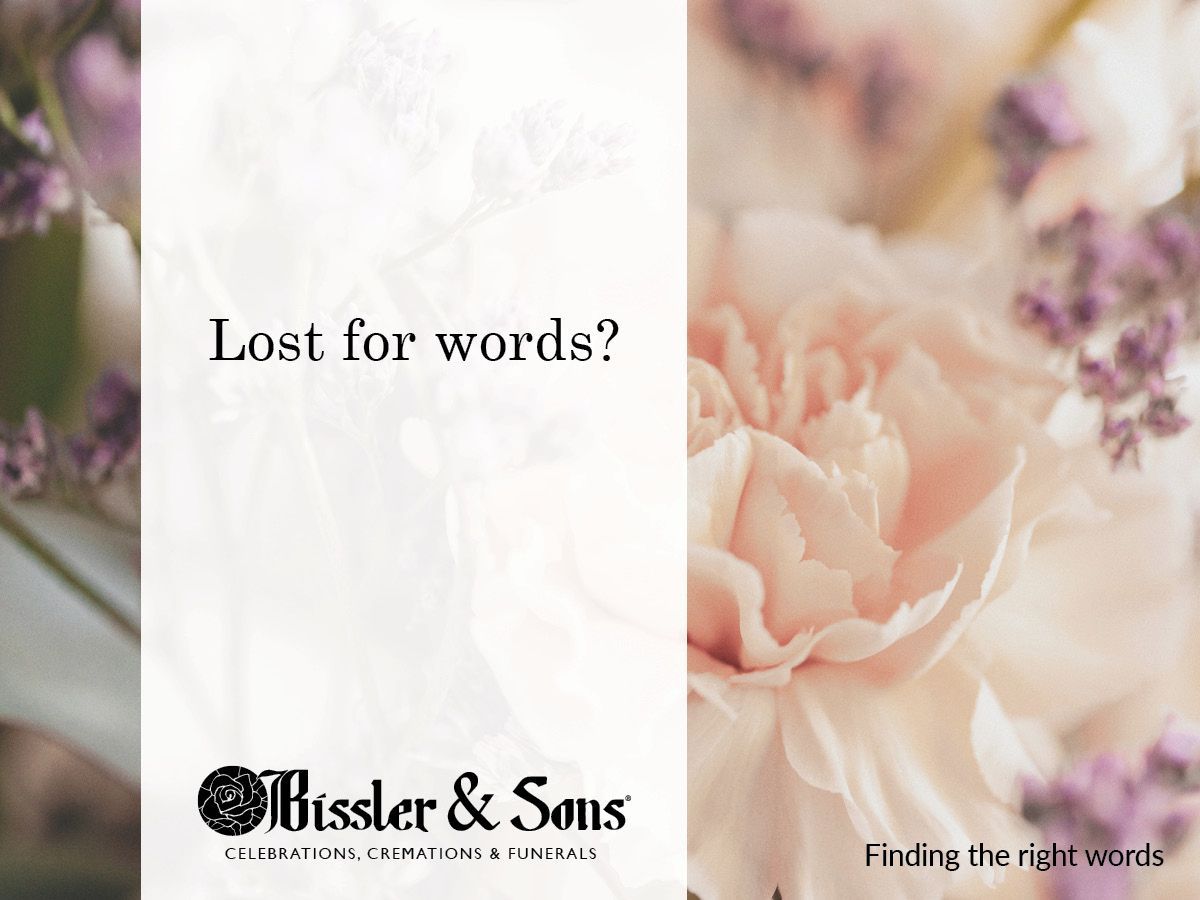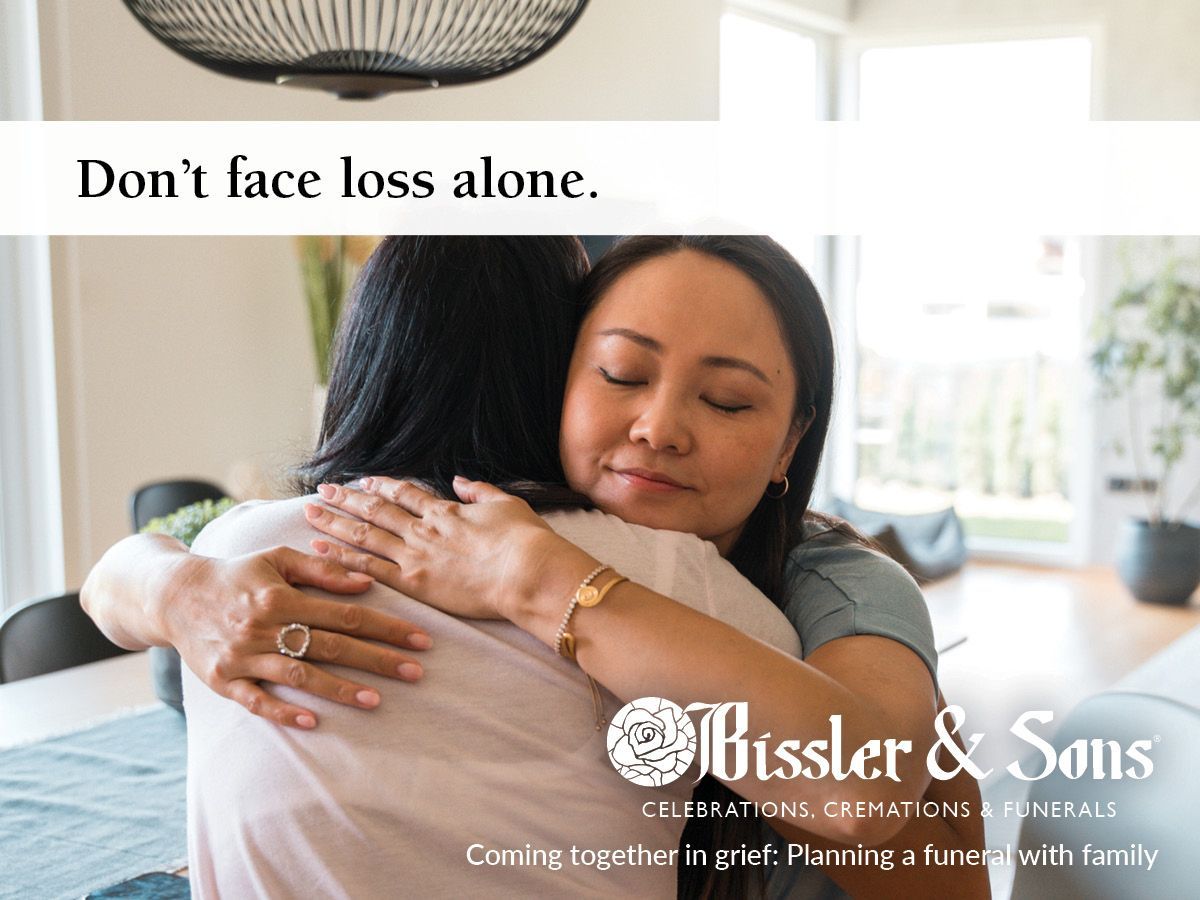7 Ways to Help When Someone is Going Through Grief
When a friend loses a loved one, you may feel powerless. Your friend is in pain, but you can’t make them feel better. You wonder what the right words are, how you can help, and if there’s any way to just make them smile again. It’s never easy to see a friend who is grieving. And while you can’t make their pain disappear, you can be there for them, emotionally and physically. With some simple actions, you can have a big effect on their grieving process.
7 Ways to Help When Someone Is Grieving
1. Don’t hesitate to reach out.
When someone we love loses a loved one, we often worry about how and when we’re supposed to go to them. Should you call them as soon as you find out? Should you give them space to comprehend their loss before you reach out? Although you may be inclined to do the latter, it’s better to let your friend know as soon as possible that you’re there for them. Give them a call as soon as you hear the news. If they answer the phone, offer your condolences and be a supportive listener. If they don’t answer, leave a message telling them that you’re here if they want to talk, but don’t pressure them to return the call. If they want to talk or feel ready to speak, they’ll reach out on their own time.
2. Listen.
When someone is grieving due to the loss of a loved one, many are often concerned about saying the right thing. What should you say to a person in mourning? What should you not say? However, in many cases, it’s more helpful to listen than it is to speak. There’s nothing you can say that fixes what has happened. And there’s nothing you can say that will make your friend stop mourning. They must move through grief in their own way and at their own pace.
But to help your friend heal, be there for them and listen to them. Some people just want to talk about their loved one. So, listen to their stories and be a sympathetic ear. Other people just want to talk about anything but the situation they are sadly in. So, listen to them talk about their favorite movies or whatever else gives them comfort during this time. But it’s also important to recognize that some people may not want to speak at all. It’s a good idea to ask, “Do you want to talk?” before asking any additional questions, especially about their loved one. If they say no, don’t take that to mean that you should leave. Be comfortable sitting in silence, allowing you both to simply take comfort in each other’s company.
3. Give your friend space to act in their grief.
Grief can cause extreme emotions. You may find that your friend is not acting like themselves while they’re in mourning. They may lash out, cry at seemingly random moments, and even push you away. Recognize that these actions are demonstrations of grief, and don’t take anything personally. Don’t call out these behaviors or try to change them. If your friend is crying, let them cry. If they’re yelling, let them yell. Be a calming presence, but don’t tell them that they need to calm down. Let them know that it’s okay to have these emotions. Remind them that you’ll be there for them, even in the moments when it feels like they’re pushing you away.
4. Check in often.
Ongoing support is crucial throughout the grieving process. When the funeral ends, mourning doesn’t. During those initial few weeks after a friend’s loved one’s death, they may have many people offering to be there for them. But as time goes on, those calls tend to become less frequent, leaving your friend to find themselves alone and still grieving. It’s crucial to continue to check in on your friend. You don’t have to call every day, but find little ways to stay connected as much as you can.
Remember that grief has no timeline. And as much as people say that time heals all wounds, they may never fully heal from losing a loved one who meant so much to them. It may be hard to see that your friend is different from who they were before their loss, but they need your support, even when it feels difficult for you. Make a point to be sure to check in on days that will be especially hard for them, such as birthdays or anniversaries.
5. Offer day-to-day support.
When we lose someone we love, our whole world can turn upside down. It’s not uncommon for our day-to-day activities to get lost in our grief. But many of us don’t have the option to simply mourn without caring about our responsibilities. If you can, try to take some of those duties off your friend’s plate. Some ideas for practical ways to help a grieving friend include:
● Organizing transportation for their kids to and from school
● Providing childcare
● Driving them to and from appointments
● Delivering easy-to-reheat meals
● Shopping for groceries or other necessities
● Taking care of housework
● Maintaining their garden or other outside spaces
● Looking after their pets
Your friend may not feel comfortable with you taking care of so many of their responsibilities, but you can still offer alternative ways to help. For instance, if your friend doesn’t want you to pick up all their groceries, ask if they would like company during their shopping trip. Sometimes, an errand buddy is all they really want.
6. Let them try to enjoy activities at their own pace.
Symptoms of depression often come with grief, and with these symptoms, it can be challenging to enjoy the things we once loved to do. Encourage your friend to accompany you to places that they have enjoyed in the past, but recognize that they might not feel up to these activities yet. It’s essential that they know that the invite is out there. It’s up to them if they want to engage in these activities, but at least they’ll see that they’ll have a friend to accompany them whenever they’re ready.
7. Make sure they know it’s okay to get help.
Grief can often look similar to depression, but because it’s so typical to have symptoms of depression shortly after losing a loved one, medical professionals generally do not diagnose depression if a loved one just passed. They view it as grief manifesting in a normal way. However, if your friend is experiencing debilitating signs of grief that get in the way of their life, they may be suffering from prolonged grief. Prolonged grief occurs when someone has lost a loved one within the last 12 months, and symptoms have persisted nearly every day for over a month. Signs of grief often get better over time. If they’re getting worse instead of better, prolonged grief may be the cause. Symptoms include:
● Feeling that a part of them has died
● Disbelief around death
● Avoidance of reminders that their loved one has died
● Intense emotional pain around their loved one’s death
● Difficulty doing everyday tasks
● Emotional numbness
● Belief that life is meaningless
● Detachment from others
Whether your friend’s grief has progressed to prolonged grief or not, they may benefit from professional intervention. If you’re concerned about your friend’s health, gently bring up that talking to a psychiatric professional may be a good way for them to process how they’re feeling. Your friend may believe unfortunate stigmas around seeking psychiatric help, so broach this topic carefully. Remind them that it’s okay to need help. If they feel overwhelmed by the thought of looking for help, offer to search for a psychiatric professional for them.
Grief doesn’t look the same for everyone. It’s likely that every friend who loses a loved one will react differently to the loss, which is why it’s so important to listen to their needs. You can’t make them stop grieving, and you can’t change the situation they are in. But you can be there for them, reminding them they’re never alone.


















